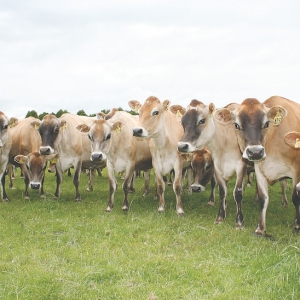“I don’t see a lot of value in it so far,” Hinrich Voges of the Johne’s Disease Research Consortium (JDRC) told Rural News. “It’s not a practical intervention tool really… though it may be more use for research.”
Taking lymph samples is fiddly even in cows accustomed to veterinary practitioners working around their udders, which no commercial New Zealand cows are, he explained. “In the EU a lot of vets take blood samples from the milk vein, so this isn’t all that different, but New Zealand cows are not used to that.”
Not many New Zealand vets have experience taking such samples either so there would be a learning process required too.
However, Johne’s is an issue New Zealand farmers should be aware of and for a few herd owners it is a serious problem, Voges stresses.
“It is definitely an issue and in some herds it is a big issue. But for most it is minor, though it is a widespread disease.”
In the worst cases annual culls due to Johne’s amount to 1-3% of the herd, with the South Island, notably the West Coast, the worst area affected.
Current controls focus on culling infected animals and taking steps to limit or eliminate exposure of calves to the bacteria.
Herd test milk samples can be checked for Johne’s antibodies to identify the worst infected cows. “It’s very simple, cheap and effective.”
Typically the summer or autumn herd test samples are the ones to get checked so infected cows can be removed before calving. Voges says about 200,000 herd test samples were checked for Johne’s last year.
“It’s a pretty recent test, and only herds with significant Johne’s problems are using it so far – maybe 5-10% of the national herd.”
The JDRC is developing a “Johne’s toolbox” for the dairy and beef industries which will likely be launched early next year. “It will give farmers and vets different options to deal with the disease without saying you have to do this, or you have to do that…. It will detail best practice, and alternative controls, and some ‘don’ts’.”

















